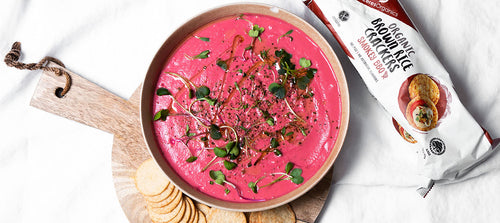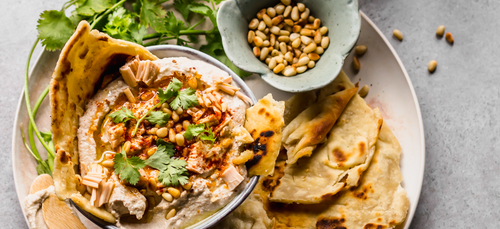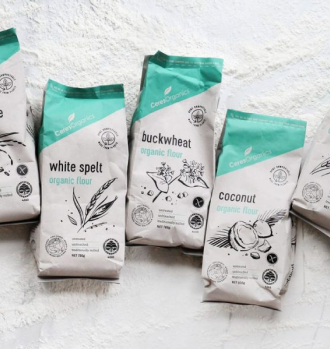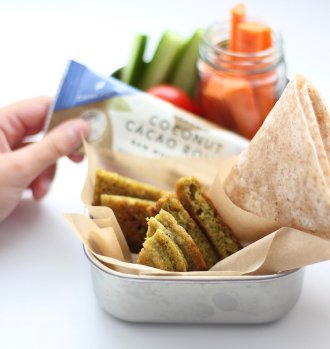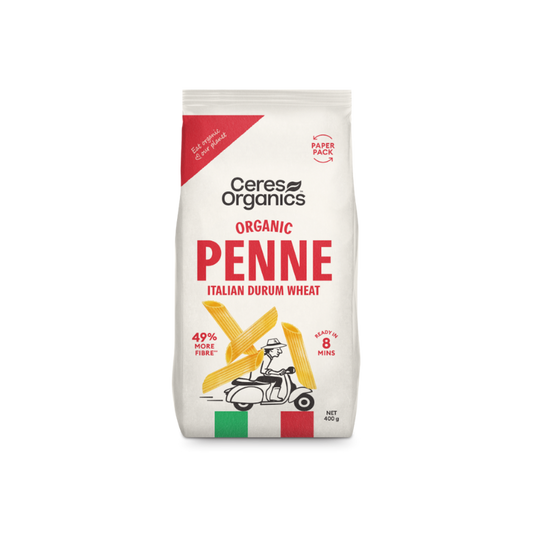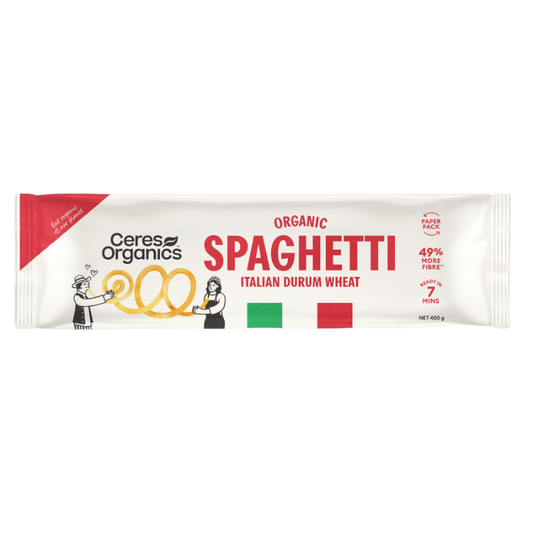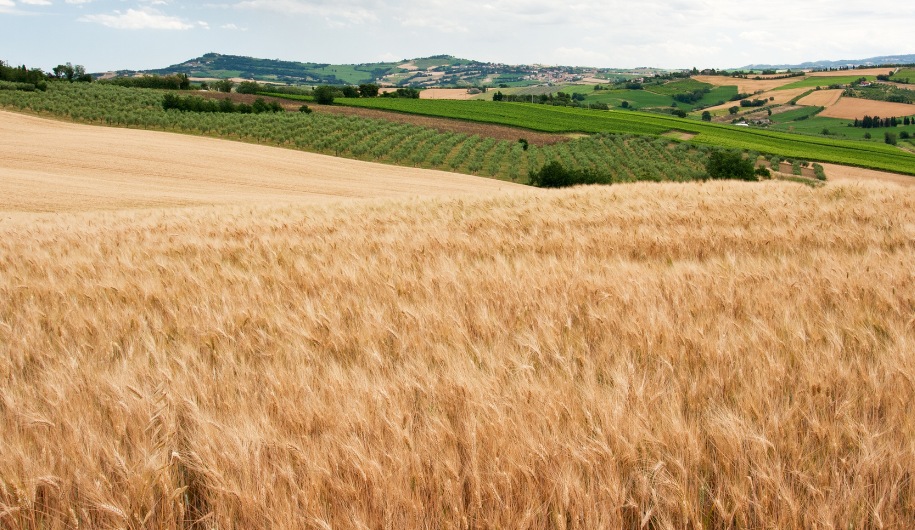
Located in the rolling hills of the Le Marche region of Italy, we find a special collective of organic farmers growing not just wheat but many grains, pulses and legumes, some of which are unique to the region.
We asked Bruno how they got started
I started following Macrobiotics in 1976 and used to shop at a Macrobiotic shop in the nearby town of Senigallia. There I met other people, including the owners of the shop and that's where the idea of our co-operative was born. In 1978 I started doing organic and biodynamic farming and also took part in the first Biodynamics course that was held in Italy that year. In 1980 the co-operative started in earnest.
What about the pasta?
At that time, we were young and involved with social politics. Disillusioned by the implications of the entire student and workers movement, we decided to retreat to the countryside to be exclusively farmers and shepherds. We had about 200 dairy sheep but back in 1982 we had the problem of who to sell our grains and cereals in region where mainly both durum wheat for pasta and soft wheat for bread are produced. However, we had the idea in our hearts and the perseverance to carry on with our pasta project. In 1985 we started to produce pasta from organic durum wheat but also from spelt and other ancient grains that would otherwise be lost to our beloved region of Le Marche.

What are you most proud of?
I am proud to have been the pioneers of organic and biodynamic agriculture in Italy, especially with regards to biodynamics. Right from when we started in 1980, with 32 hectares of land, we farmed biodynamically and we were the first in Italy to have the Demeter brand on pasta. We also experimented with Fukuoka agriculture, known as "the straw revolution".
I am also proud to have been among the first to have built a structure with green building, to have conducted a study into fair trade for our farming partners and to have full traceability from the field to the table.
Is there something special in the Marche region that makes it so good for the production of cereals, even ancient ones?
The Marche region has an ideal climate and soil for the production of cereals. The south of Italy certainly has more sun than us, but it is often so dry that it also compromises the harvest of cereals, while in our region with a rainier climate, it has never happened that the cereals are not harvested due to drought. The protein content is also good, necessary to obtain good pasta, so much so that large pasta industries such as Barilla, make cultivation contracts with producers from the Marche region.
How do you guarantee the absence of genetically modified organisms and synthetic chemicals in the wheat?
Monitoring with specific analysis, both for GMOs and chemicals, is our normal practice to guarantee their absence.
How do you manage the health of the land and the biodiversity of the fields?
The health and fertility of the land is managed with the contribution of organic matter from the company or with the purchase of organic compounds allowed in organic farming, with green manures and rotations. Generally, alfalfa is grown for four years so that the land can rest, clean itself of weeds and regenerate, then a year of durum wheat is grown, followed by spelt, sunflower cultivation, another cereal and then back to rest with alfalfa. Biodiversity is ensured by this rotation of crops.
What does organic mean to you personally, not as a brand but as a lifestyle?
Organic for me encompasses everything, embracing a new lifestyle: true organic agriculture in the fields, restoring fertility to the soil to obtain healthy food and a response to climate change, an ethical solidarity economy, consequently a fair price for producers to allow them to live with dignity from the fruits of their land and labours, to build only “green buildings”, use ethical finance, create beauty and harmony in the environment with windbreak hedges and to defend against pollution from non-organic businesses. To restore old varieties of plants that respond better to organic agriculture and human health.
What would you like people to feel when they eat your pasta?
The flavour, the scent of wheat. This is obtained with excellent quality wheat and with an artisanal process: slow drying at low temperatures. We dry it more slowly than conventional pasta, so yes it takes more time but it’s worth it! This way, it simply tastes better but it also keeps more of its nutritional value.

What does it mean for you to be a partner of Ceres Organics for so long?
Being a partner of Ceres Organics is a source of great pride, if I'm not mistaken we started this collaboration in 1995, this year marks the thirtieth anniversary. Knowing that you were the pioneers in New Zealand and we were pioneers in Italy is really beautiful. It is an important economic collaboration, but above all, a collaboration of quality of products, the quality of human relationships and friendship, all the more necessary today in this economy marked with competition that is contributing to so many world problems.
When our founder, Noel Josephson, discovered what he described as “the best pasta he’d ever tasted” back in the early ‘90s, this friendship was cemented…and it culminates in our latest unique collaboration: semi-wholewheat durum pasta!
Pasta Semi-Integrale is quite easy to find in Italy but less known in other parts of the world. It still contains some of the bran closest to the heart of the wheat grain so it’s a bit of a cross between a white and wholewheat pasta. It’s got almost twice the fibre as white pasta but retains its easy to eat texture. A great way to get your family having higher fibre in their diets without realising!

